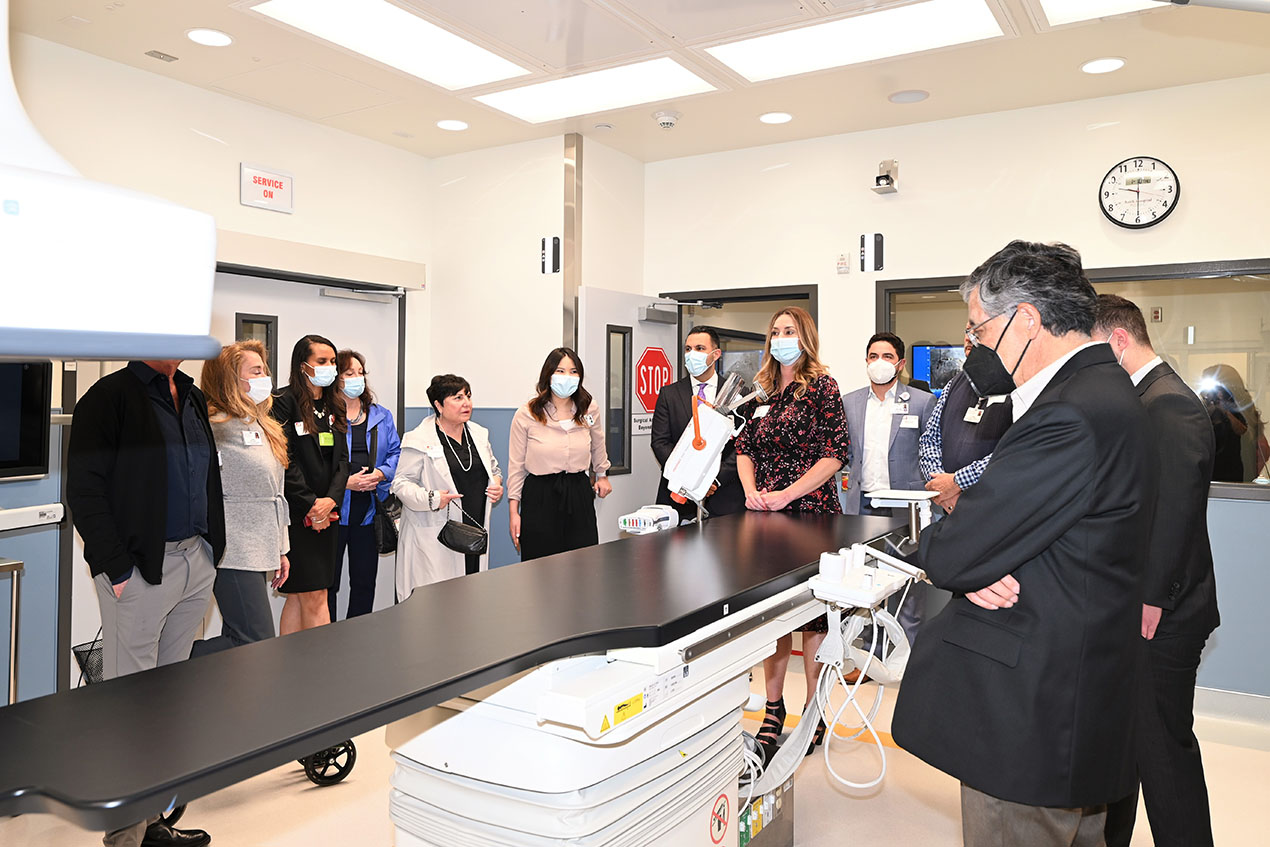On April 28, a ribbon-cutting ceremony celebrated the launch of the Interventional Radiology and Catheter Laboratory at USC Verdugo Hills Hospital that will provide two crucial elements of emergency cardiovascular care for patients in the Verdugo Hills and surrounding communities.
Among community cardiologists in the area, there is already building excitement around the possibility of referring patients once the lab opens. Community specialists will staff the lab along with Keck Medicine of USC cardiovascular physicians at USC-VHH. The Keck Medicine physicians in particular will be available to offer their academic medical expertise in more complex and challenging cases.
When the facility opens this summer, “we’ll be able to offer an additional aspect of state-of-the-art care for those patients,” said Vaughn Starnes, MD, chair of the Department of Surgery and surgeon-in-chief at USC Norris Cancer Hospital and Keck Hospital of USC.
A cath lab uses diagnostic imaging to view the arteries of the heart and its chambers to identify abnormalities such as aortic stenosis, a narrowing of the blood vessel valve that reduces blood flow to the body and makes the heart work harder.
And once the source of a critical event is found, interventional radiology enables speedy treatment by providing imaging guidance for minimally invasive procedures. Those techniques can include X-ray, fluoroscopy, computerized tomography (CT), MRI or ultrasound to guide small instruments through the blood vessels for delicate surgeries such as angioplasty or stenting — critical procedures that could not previously be performed at USC-VHH.
Although heart disease is the leading cause of death worldwide, a health care center with robust cardiovascular-care capabilities might not be close by, even in a large city.
Once the lab opens, USC-VHH will be one of only 20 hospitals in the country with the technology required for an IR cath lab.
Crucial cardiovascular service for the community
This lab isn’t just for USV-VHH doctors. Community physicians will have access as well, and a community physician will oversee the lab.
Starnes said he hopes USC-VHH doctors and community physicians will quickly learn of this service to boost speedy referrals and ensure that patients experiencing a cardiovascular emergency are seen at the closest possible facility.
To have both capabilities in one lab can expedite comprehensive lifesaving treatment, said Armand Dorian, MD, chief executive officer and former chief medical officer of USC-VHH.
“The most important factor is the time of delivery of care,” said Dorian, who has a background in emergency medicine. “It will be minutes away from members of the Verdugo Hills community, and those minutes count.”
For Sue Wilder, who co-chaired the IR cath lab fundraising committee with her husband Steve, the USC-VHH project is personal.
When her brother suffered a heart attack several years ago, the closest hospital did not have a cath lab available to pinpoint the specific cause or determine the best course of action. To this day, Wilder firmly believes quick access to such a facility could have saved her brother’s life.
“That’s why I am passionate about getting an IR cath lab here at USC-VHH,” she said.
— Kate Faye


